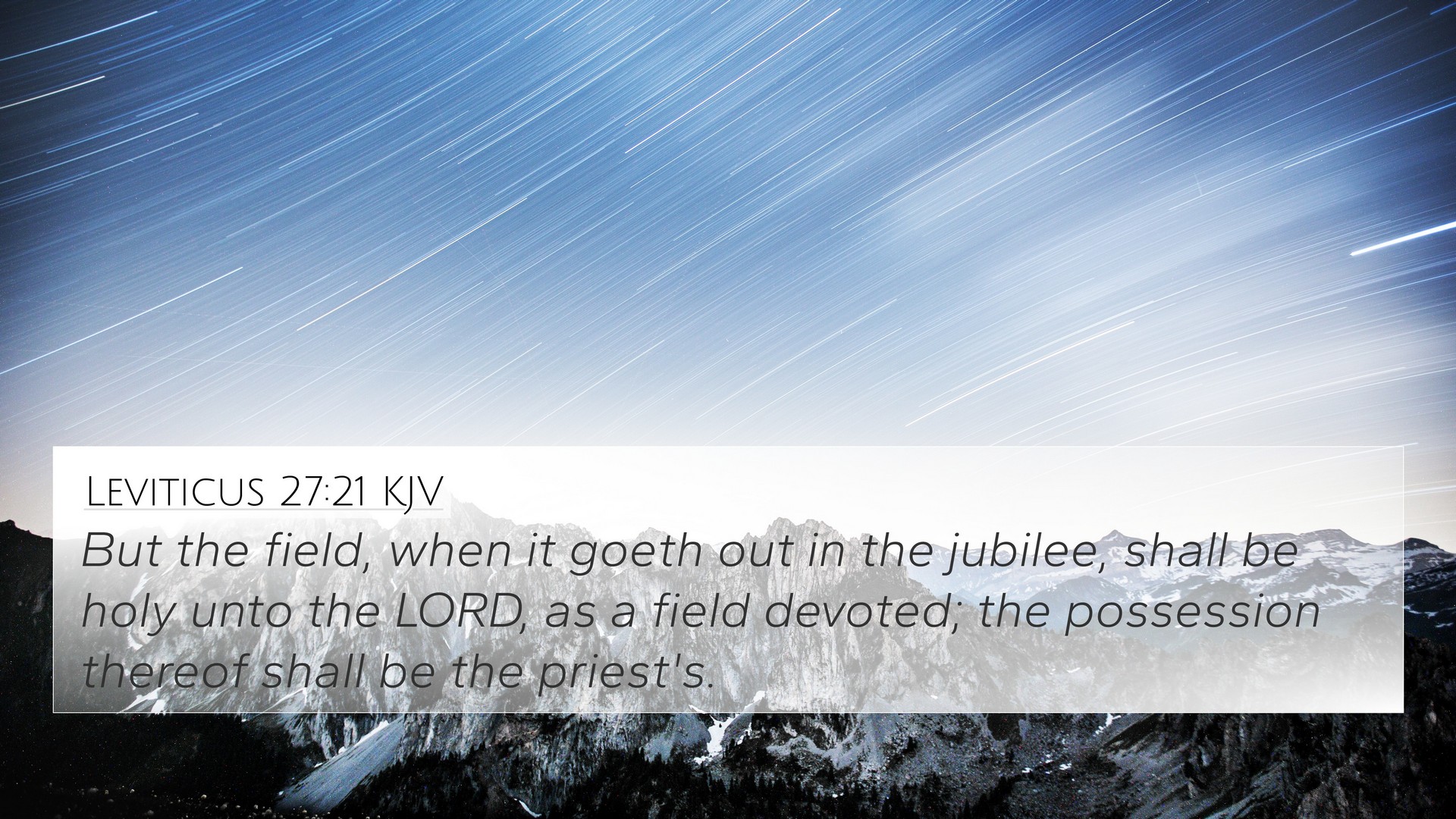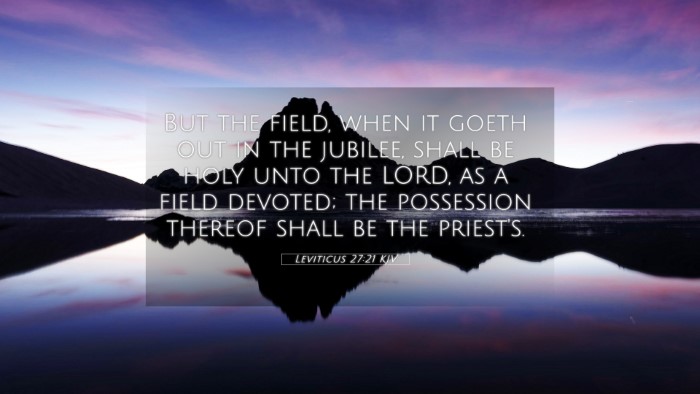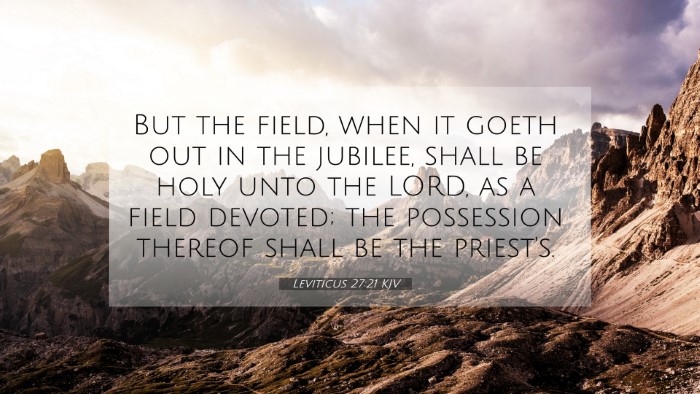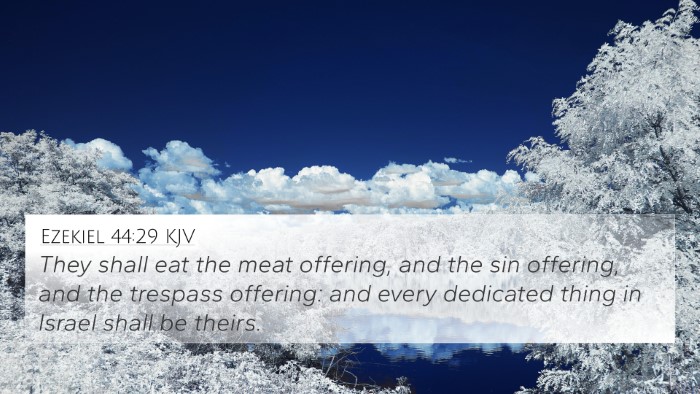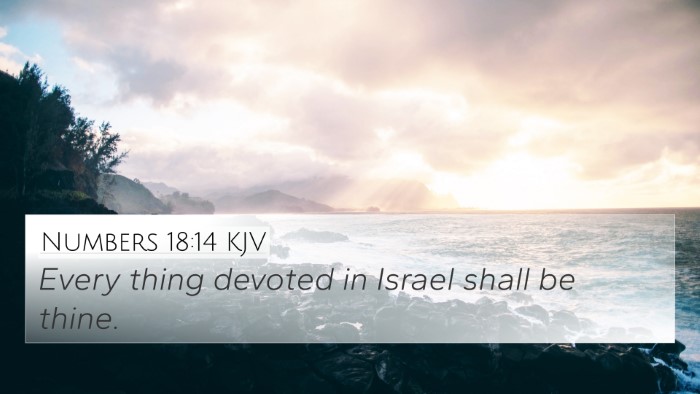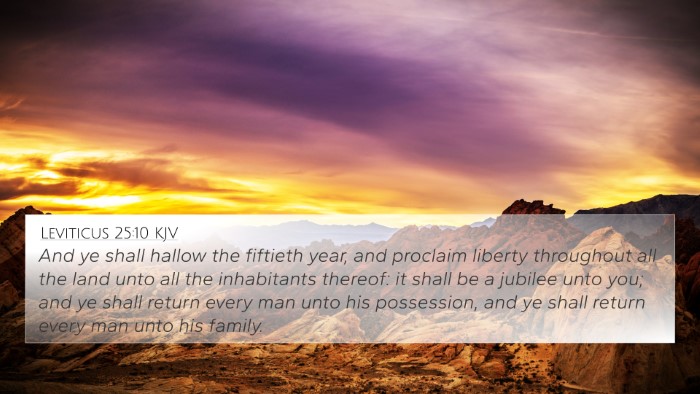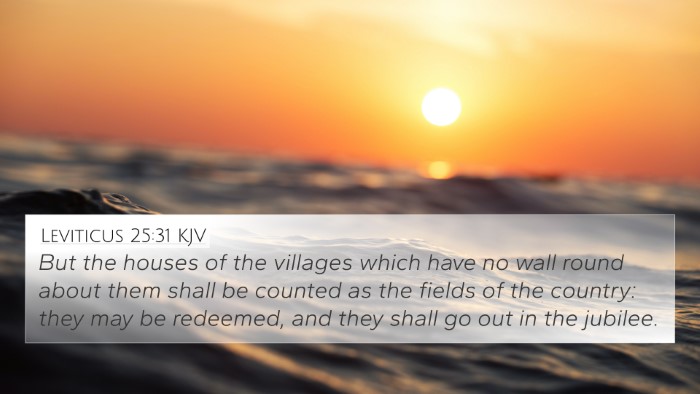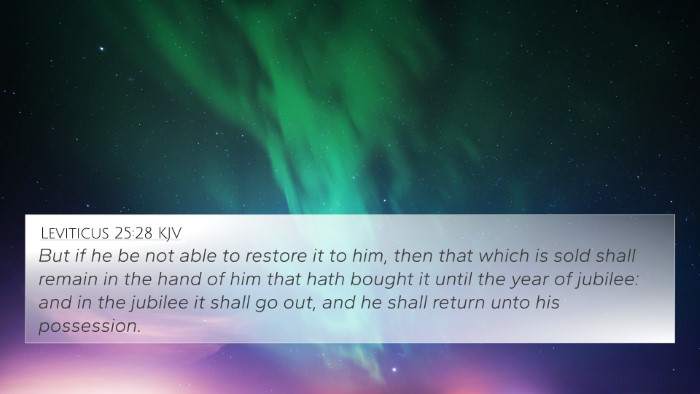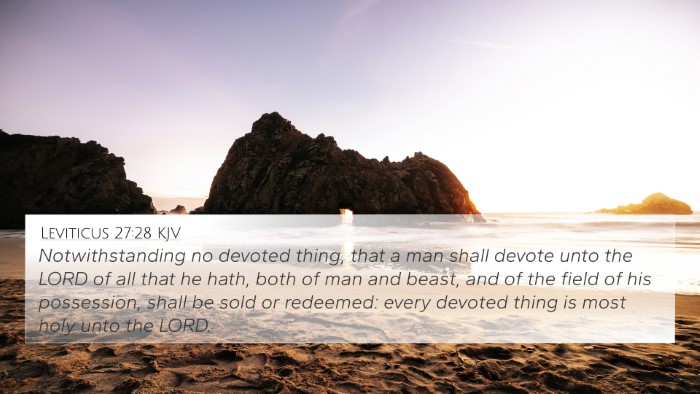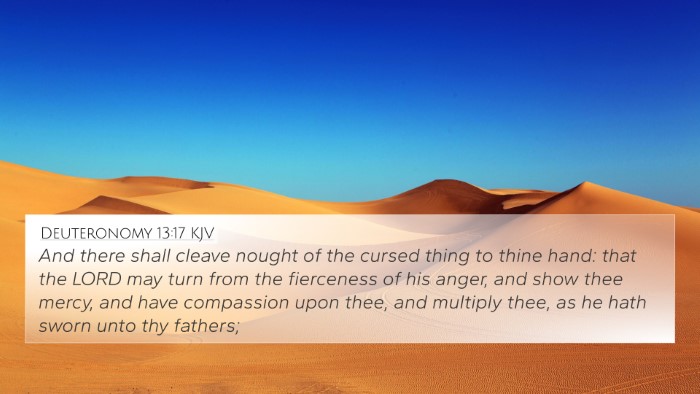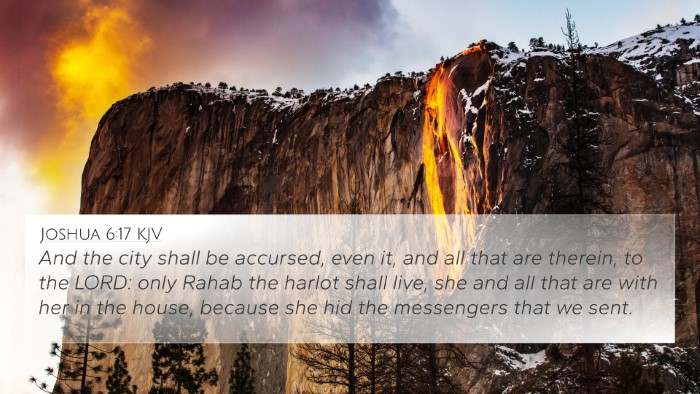Understanding Leviticus 27:21
Leviticus 27:21 states: "But the field, when it is released in the jubilee, shall be holy to the LORD, as a field devoted; the possession thereof shall be the priest's." This verse is part of the laws pertaining to vows and the redemption of property, and it emphasizes the sanctity of land as belonging to God.
Summary of the Verse's Meaning
The meaning of Leviticus 27:21 can be compared and analyzed using insights from several public domain commentaries:
-
Matthew Henry:
Henry explains that the concept of Jubilee is crucial to understanding this verse, highlighting that fields are not just economic assets but are sacred. The verse points to God's ultimate ownership of land and the spiritual responsibilities that come with stewardship.
-
Albert Barnes:
Barnes adds that the idea of a field being devoted to the Lord signifies that its use is to be distinct, acknowledging that it serves a purpose beyond material profit and reflects God's provision for His people.
-
Adam Clarke:
Clarke emphasizes the permanence of the holiness of the land. Once it is dedicated to God, it remains so, and this highlights the enduring nature of commitments made to the Lord.
Connections between Bible Verses
Leviticus 27:21 interacts with numerous other scriptures throughout the Bible, highlighting the theme of sacred land and property laws. Here are some key cross-references:
- Exodus 23:10-11: Discusses the Sabbath year for land, allowing it to rest and offering a glimpse of God’s care for creation.
- Deuteronomy 15:2: Describes the year of release, ensuring that debts are forgiven, reflecting God’s mercy.
- Numbers 36:7-9: Emphasizes the importance of preserving the heritage and inheritance, which connects to God’s covenant with His people.
- Ezekiel 44:28: States that the priests would have no inheritance among the people, as the Lord is their inheritance, tying back to the concept of land being wholly dedicated to God.
- Matthew 6:33: Reinforces the idea that seeking God and His kingdom takes precedence over material possessions.
- Colossians 3:2: Encourages believers to set their minds on things above, mirroring the concept of holiness attributed to land in Leviticus 27:21.
- Revelation 21:1-2: Indicates the ultimate fulfillment of God’s promises where the new creation is established, reflecting God’s enduring ownership.
Bible Verse Parallels
Understanding Leviticus 27:21 can be enriched by engaging in comparative Bible verse analysis. The following considerations yield insights into the broader Biblical narrative:
- Thematic Bible Verse Connections: The recurring motif of holiness, ownership, and redemption can be traced throughout the Bible and is poignantly presented in Leviticus.
- Links to the New Testament: The fulfillment of these principles in Christ can be notably found in His teachings about stewardship and the Kingdom of God.
- Bible Verses That Relate to Each Other: The emphasis on community, shared resources, and divine ownership can be connected back to the instructions given by Jesus on loving one’s neighbor.
Tools for Bible Cross-Referencing
To make the most of the insights from Leviticus 27:21 and its cross-references, consider employing the following tools and methods:
- Bible Concordance: A valuable resource for locating where specific terms or concepts appear throughout the scriptures.
- Bible Cross-Reference Guide: Various Bibles provide an index of cross-references that can highlight connections between verses.
- Cross-Reference Bible Study: Engaging in group studies that focus on linking scriptures can foster deeper understanding and facilitate discussion.
- How to Use Bible Cross-References: Familiarization with cross-reference systems can enhance personal study and sermon preparation.
- Comprehensive Bible Cross-Reference Materials: Seek resources that compile thematic, topical, and scriptural connections for deeper exploration.
Conclusion
Leviticus 27:21 serves as a profound reminder of God's sovereignty and the sacredness of His provisions. Through cross-referencing and thematic analysis, believers can deepen their understanding of this verse and its implications for stewardship, community living, and the everlasting nature of God's promises.
